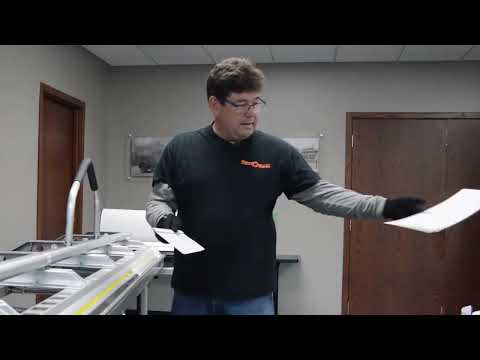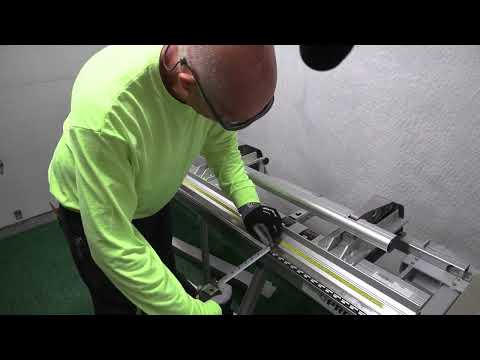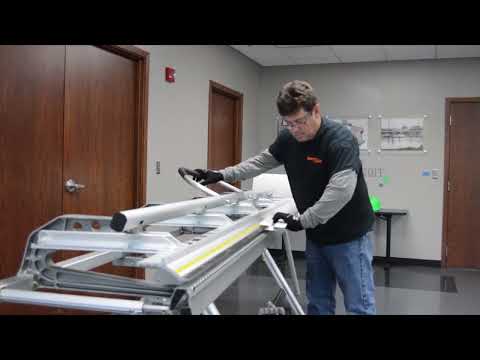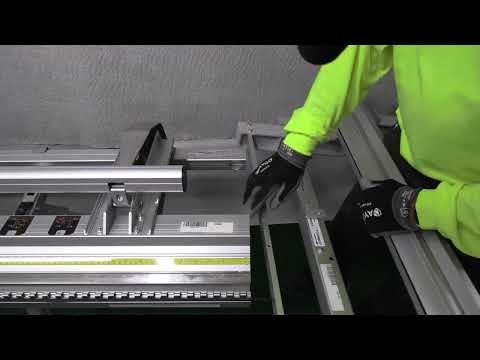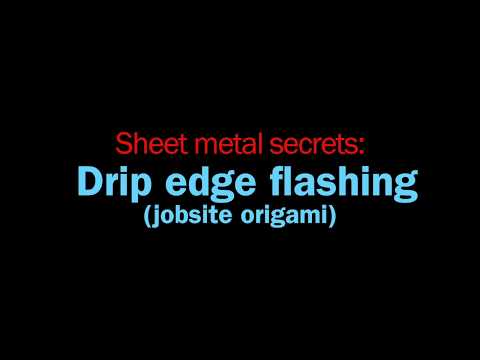The secret to step-bends, aka Z-flashing, that are smaller than 3/4-inch
The typical offset on sheet metal brakes is 3/4-inch, so bending a 3/4-inch step Z-flashing is quick and easy. But bending a smaller step for a Z-flashing is trickier. This video demonstrates the formula for bending sheet metal around the standard width.
The formula for bending sheet metal with a 3/4-inch step
Step 1: Bend 90-degreesStep 2: Flip the sheet metal over and bend another 90-degree bend
The default offset between the bending edge and the clamping hinge is 3/4-inch, so a 3/4-inch Z-flashing is very simple to make. This is handy because a lot of exterior trim is 3/4-inch thick.
The formula for bending sheet metal with a 1/2-inch step
Because the default offset between the bending edge and the clamping hinge is 3/4-inch, many people do not know that you can smaller Z-flashing sizes. In fact, you can make 1/2-inch Z-flashing or even 3/8-inch Z-flashing by splitting the first 90-degree bend into two parts.
Make a 45-degree bendFlip over sheet metal, make the second 90-degree bendFlip over the sheet metal again, and finish the 45-degree bend into a 90-degree bend
Step-bends are an integral part of many profiles needed for roofing and siding installation and replacement. Now you know that you have more formulas for bending sheet metal.
